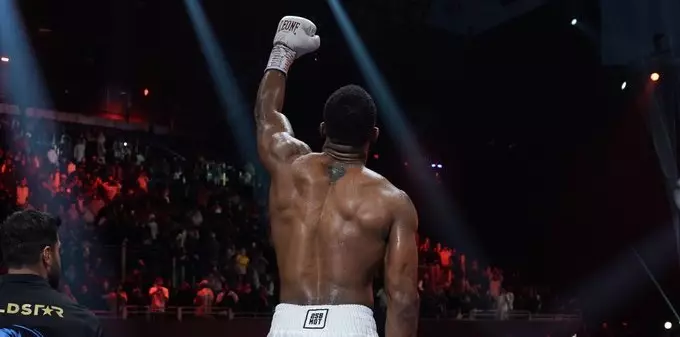Boxing, a sport synonymous with physical prowess and mental toughness, can also be devastatingly brutal. Athletes willingly step into the ring, fully aware of the risks involved, but as the years of competition accumulate, the question of when to retire becomes more complex. The allure of glory, recognition, and financial rewards often leads fighters to linger longer than they should. Few know this reality better than those who have faced severe defeats, and recent events have brought Anthony Joshua’s future into sharp focus.
Anthony Joshua is not just any fighter; he’s a former heavyweight champion who brought enormous excitement to the boxing world. Nevertheless, his recent loss to Daniel Dubois has raised serious concerns about his capacity to compete at a high level. Joshua’s career has been marked by tremendous highs, including victories over prestigious opponents, but his trajectory has taken a perilous turn. The aftermath of his defeat raises questions about whether he should consider hanging up the gloves for good. Continuous defeats can lead to lasting damage, both physically and psychologically, making it crucial for fighters to evaluate their well-being with clarity and honesty.
Over the years, numerous fighters have grappled with the painful reality of overstaying their welcome in the ring. Legends like Roberto Duran and Mike Tyson faced criticism as their careers began to wane, often leading to tragic outcomes. Failing to heed signs of decline can result in severe injury or long-term health issues. Joshua, having absorbed not just one, but a series of punishing blows from elite opponents like Andy Ruiz and Wladimir Klitschko, must reflect on the potential ramifications of his choices moving forward. Each fight is not merely another contest; it’s an intricate gamble with long-lasting consequences.
A Sluggish Market for Comebacks
Boxing is filled with stories of comeback attempts that end in disappointment. Fans and analysts alike romanticize the idea of a triumphant return, yet the reality often paints a different picture. Joshua may envision a brief resurgence; however, the harsh truth is that the physical toll of repeated losses can make achieving that goal exceedingly difficult. Arriving at a clear-minded decision requires a firm understanding of one’s limitations. Is the desire to reclaim past glory driving Joshua? Or is it a refusal to accept the inevitable passage of time in a sport that is unforgiving to those who remain stubborn?
The Pursuit of Stability
True greatness in boxing often involves knowing when to step aside. Retirement may not be a sign of weakness; rather, it reflects a mature and informed decision prioritizing one’s health above fleeting fame. Anthony Joshua has accomplished remarkable feats in his career, and his legacy as a champion should not be tainted by prolonged struggle. The consensus among boxing analysts and fans suggests that this is the moment for Joshua to reassess and evaluate the long-term implications of his career choices. The stakes are far too high to ignore.
In reflecting upon his career, Anthony Joshua stands at a crucial crossroads. Boxing is undeniably a glorious spectacle, but it is also a testing ground of will and resilience, increasingly complicated by the physical realities of the sport. It’s imperative for Joshua to contemplate his future soberly. Should he retire now, he will preserve the reputation he fought hard to build. Navigating this path successfully would hinge not just on his ability in the ring, but also on his understanding of when to bow out gracefully. As his fans hold their breath, there is an unmistakable hope that Joshua will prioritize his health and exit with dignity, honoring both the sport and himself.

